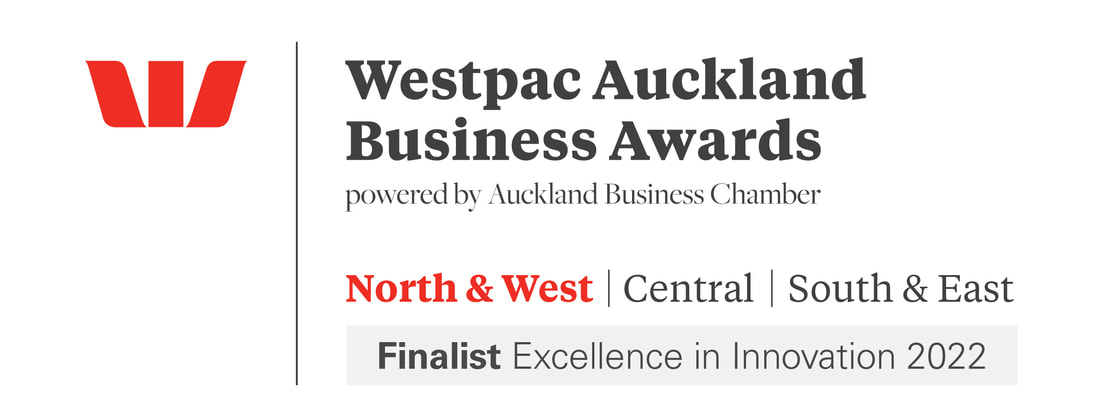|
Celebrating Green Burials with Robert J. Cotton Funeral Directors
We are honoured to share some meaningful moments from a recent green burial facilitated by Robert J. Cotton Funeral Directors, showcasing one of our eco-friendly Outside The Box cardboard caskets. Green burials, also known as natural burials, are becoming increasingly popular in New Zealand. As more people seek environmentally friendly alternatives to traditional burials, green burials offer a beautiful and sustainable option. Natural burials minimise environmental impact by using biodegradable caskets, avoiding harmful embalming chemicals, and allowing the body to decompose naturally. This practice not only conserves natural resources but also promotes the health of local ecosystems. By embracing natural, biodegradable materials, green burials support the cycle of life and provide an eco-conscious way to lay loved ones to rest. Robert J. Cotton Funeral Directors are among the funeral homes that have shown exceptional support for families choosing green burials. We are grateful for their support of Outside The Box Caskets and their commitment to offering our biodegradable caskets as an option for families. By sharing these photos, we hope to inspire more families to consider this eco-friendly choice. For more information on green burial sites in your area, visit this link. We thank Robert J. Cotton Funeral Directors and other funeral homes across New Zealand for their support in promoting green burials. Their dedication to sustainability allows families to honour their loved ones in a way that respects and protects the environment. Outside The Box Caskets are available to funeral homes across New Zealand, offering a departure from the ordinary. Crafted from 100% biodegradable, recycled cardboard, our caskets honour your loved ones and the planet. Our eco-friendly caskets provide a unique and personal touch to the funeral process. They support environmentally conscious practices and offer a meaningful, personalised option. For more details, visit our website at Outside The Box Caskets.
0 Comments
Embracing Sustainability in Funeral Practices: The Latest Innovations
As our world leans more towards sustainability, the funeral industry in New Zealand is also making strides to go green. Here’s a look at some of the latest eco-friendly technologies and practices making waves in how we say our final goodbyes. Biodegradable and Eco-Friendly Caskets At Outside The Box Caskets, we are leading the charge with our biodegradable caskets made from recycled materials. Our cardboard caskets decompose naturally, which is much kinder to the environment than traditional options. We also offer caskets made from sustainable materials like bamboo and wicker, giving whānau more green choices. Water Cremation (Alkaline Hydrolysis) Water cremation, also known as alkaline hydrolysis, is a new and greener alternative to traditional cremation. It uses water and potassium hydroxide to break down the body, resulting in a much smaller carbon footprint and less energy consumption. The remaining liquid is sterile and safe for the environment, making it a top choice for those who care about their ecological impact. Human Composting Human composting, or natural organic reduction, is gaining popularity. The body is placed in a vessel with organic materials like wood chips and straw. Over a few weeks, microbes break everything down into nutrient-rich soil. This soil can then be used to grow plants, creating a living memorial. It’s a beautiful way to give back to the Earth. Green Burial Sites Green burial sites are all about preserving nature. These sites don’t use traditional grave markers; instead, they use native plants or simple stones. They keep the natural landscape intact and provide habitats for wildlife. Whānau can find their loved ones’ graves using GPS, which means no need for intrusive markers. See the list of natural burial sites across New Zealand here. Digital Memorials and Virtual Funerals The digital world is changing how we remember our loved ones. Digital memorials and virtual funerals are becoming common, especially after the COVID-19 pandemic. These platforms let whānau and friends share memories, photos, and videos online, creating an interactive and lasting tribute. Virtual funerals also reduce the need for travel, which is better for the environment. Eco-Friendly Embalming Traditional embalming uses harmful chemicals like formaldehyde. Now, eco-friendly embalming fluids made from essential oils and biodegradable substances are available. They preserve the body without damaging the environment, fitting perfectly with green funeral principles. Reusable and Rental Caskets To cut down on waste, many funeral providers now offer reusable or rental caskets. These caskets are used for the ceremony, and the body is later placed in a simple, biodegradable casket for burial or cremation. This reduces resource use and can be more affordable. Carbon Offsetting Carbon offsetting is an option some funeral providers are exploring to balance out the environmental impact of their services. By calculating the carbon footprint and investing in projects that reduce emissions, such as tree planting or renewable energy initiatives, it's possible to mitigate the ecological effects of funeral practices. The funeral industry in New Zealand is embracing sustainability with innovative practices that respect our planet. From biodegradable caskets to human composting, these eco-friendly options help us honour our loved ones while caring for the Earth. By choosing these green practices, we can leave a legacy of environmental stewardship for future generations. Funeral vs Celebration of Life: Understanding the Differences
When it comes to saying goodbye to a loved one, the way we choose to commemorate their life can vary greatly. Traditionally, funerals have been the go-to method, but increasingly, people are opting for celebrations of life. At Outside the Box Caskets, we believe in offering choices that honour individual lives uniquely and sustainably. Let's explore the key differences between a funeral and a celebration of life, and consider why we use the term "funeral." Why Do We Call It a Funeral? The term "funeral" has deep historical and cultural roots, originating from the Latin word "funus," which means a burial or funeral ceremony. Traditionally, funerals are solemn occasions marked by rituals designed to honour the deceased and provide closure for the living. These ceremonies provide a structured way to say goodbye, rooted in cultural and religious practices, bringing people together to support each other in grief and offering a formal farewell. Traditional Funeral A traditional funeral primarily acknowledges a person's death and pays respects through a solemn, reflective ceremony. These events typically include a wake or viewing, where family and friends can view the deceased and offer condolences, followed by a ceremony, religious or secular - led by an officiant. The final committal, either through burial in a coffin or cremation, concludes the service. This structured approach helps the grieving process by providing a sense of closure and continuity, especially in communities with strong cultural or religious ties. Celebration of Life In contrast, a celebration of life focuses on commemorating the deceased's life and achievements in a joyful and uplifting manner. These highly personalised events may include sharing memories, music, photo slideshows, and personal tributes. Celebrations of life can take place anywhere, from a beach to a family home, reflecting the personality and preferences of the deceased. They can be held before or after the burial or cremation, allowing for a more relaxed and joyous occasion once the immediate formalities are over. This approach helps mourners focus on the joy and legacy left behind, fostering a sense of gratitude and connection. Key Differences The tone and atmosphere of these two types of ceremonies differ significantly. Traditional funerals are typically solemn and introspective, while celebrations of life are more uplifting and positive. Funerals usually follow a set format, whereas celebrations of life are highly flexible, allowing for creativity and personalisation. This flexibility offers greater opportunities for customisation, from location to activities, making each event unique to the individual being honoured. Choosing the Right Approach When deciding between a traditional funeral and a celebration of life, families should consider factors such as cultural and religious beliefs, the personality of the loved one, and what will provide the most comfort and meaning to those grieving. It's also possible to combine elements of both, creating a hybrid event that respects traditions while celebrating the unique life of the deceased. Both funerals and celebrations of life serve important roles in the grieving process. The right choice depends on what feels most fitting for honouring your loved one and supporting your family through their loss. In the end, it doesn't really matter what we call it - a funeral or a celebration of life. What matters is finding the right fit for you and your loved ones, creating a meaningful tribute that provides comfort and healing. The Environmental Impact of Modern Burials
In an era where environmental conservation is paramount, the choice between traditional and eco-friendly burials becomes not just a personal preference but a statement of our commitment to the planet's future. Traditional burial practices, while steeped in cultural and historical significance, cast a long shadow on our ecological footprint. From the manufacturing of caskets to the embalming process, these methods consume significant resources and introduce harmful chemicals into the earth. Traditional Burials: An Unsustainable Legacy Traditional burials often involve caskets made from non-renewable materials like metal and hardwood, which are not only resource-intensive to produce but also slow to decompose. Embalming, a common practice intended to preserve the body, uses formaldehyde-based fluids that can leach into the soil, potentially contaminating groundwater. Furthermore, traditional burial plots occupy valuable land space. With urban areas expanding and natural habitats shrinking, the allocation of land for cemeteries presents a growing concern. The permanence of these burial sites means that the land cannot be repurposed for generations, if at all. Eco-Friendly Burials: A Path to Sustainability In contrast, eco-friendly or "green" burials present a harmonious alternative, aligning our final act with a commitment to environmental stewardship. Eco-friendly burials forego embalming chemicals in favour of natural decomposition, use biodegradable caskets or shrouds, and encourage the use of existing natural landscapes over conventional graveyards. In this shift towards environmental stewardship, embracing eco-friendly burials means selecting methods that allow natural decomposition without the use of harmful chemicals. A key component of this sustainable approach is the choice of casket. "Outside The Box Cardboard Caskets" exemplifies this commitment with their biodegradable cardboard options, a stark contrast to the non-renewable materials of traditional caskets. These cardboard caskets, alongside other sustainable materials like bamboo and wicker, not only symbolize a return to nature but actively contribute to the health of our planet by ensuring that our final footprint is as light as possible The Ripple Effect of Green Choices The benefits of eco-friendly burials extend beyond the immediate environmental impact. They serve as an educational tool for communities, highlighting the importance of sustainable practices in all aspects of life, including death. By opting for a green burial, individuals can leave behind a legacy of respect for the environment, inspiring future generations to make choices that prioritise ecological health. Conclusion: A Final Act of Conservation As we navigate our lives, the choices we make reflect our values and our vision for the future. In choosing eco-friendly burials, we embrace a practice that honours our loved ones while respecting the balance of nature. It's a choice that underscores a commitment to conservation, ensuring that our final act on this earth contributes to the health and vitality of the planet we leave behind. In the end, the transition towards eco-friendly burials represents not just an environmental imperative but a profound opportunity to redefine our legacy, ensuring that in death, as in life, we contribute positively to the world around us. Unveiling the True Value of Cardboard Caskets: Beyond the Box When selecting a casket, cardboard options are often perceived as the more budget-friendly choice. Yet, it's not uncommon for people to be taken aback by the not-so-modest price tag. The question arises: "It's just cardboard, right? Why the significant cost?" Let's dive deeper to understand the true value behind these caskets. Outside The Box Casket Weight Test - 320kg More Than Just a Box
It's crucial to acknowledge that cardboard caskets are far from ordinary. They are a product of ingenious engineering and thoughtful design, created to provide dignity and robustness. Take Outside The Box Caskets, for example: each one is meticulously weight-tested to bear up to 320kg, setting a benchmark for strength that is unmatched in the cardboard casket market. The Hidden Costs You Don't See The simplicity of cardboard masks the intricate process and associated costs of crafting a casket: Made in NZ: Our caskets are not only designed in New Zealand but also manufactured here from FSC-certified recycled cardboard. Handmade: Each casket is handcrafted with care. Our caskets components are manually fed through a die-cutting machine, necessitating two operators. Our jute handles and twine lid ties are also tied by hand, adding to the craftsmanship. Logistics: Delivering these substantial items goes beyond standard shipping due to their size. Storage: The considerable space required to store these caskets translates into significant warehousing expenses. Materials: We use a substantial amount of durable, high-quality raw material. For instance, the largest board piece in an Outside The Box casket is an impressive 2.7 metres long. It took three years of dedicated engineering and prototyping to perfect our caskets, and we take immense pride in their strength. The True Value When we talk about the cost of cardboard caskets, we're talking about more than just the materials used. We're talking about the dedication to quality, the innovation in design, and the responsible sourcing that goes into creating a product that respectfully serves its purpose. These caskets are not merely containers; they are the result of a careful process designed to offer a sustainable and honourable choice for a final resting place. So, while cardboard caskets may come with a higher price tag than anticipated, they are anything but simply 'expensive.' They represent a thoughtful choice for families, offering a balance between cost, environmental awareness, and the respect due in a final farewell. These caskets are not simply boxes; they are the culmination of thoughtful design and environmental responsibility, ensuring that every farewell is as meaningful as it is mindful of our planet. The Beauty and Benefits of Green Burials Green burials, also known as natural burials or eco-friendly burials represent a profound departure from the traditional practices of laying the deceased to rest. In contrast to the elaborate and resource-intensive rituals often associated with conventional funerals, green burials offer a more environmentally conscious and ecologically sustainable approach. They prioritise simplicity, ecological sensitivity, and a deep connection to nature. In doing so, green burials aim to minimize the negative environmental impacts associated with traditional burial practices, which frequently involve embalming fluids and non-biodegradable caskets. The concept of green burials has roots that extend far back in human history, echoing the practices of ancient civilisations. However, it wasn't until the late 20th century that the modern green burial movement gained significant momentum. This surge in interest came as a direct response to growing concerns about the ecological consequences of conventional burial practices, which often disrupt ecosystems and contribute to pollution. The United Kingdom played a pivotal role in popularising green burials on a global scale. In a historic moment in 1993, Carlisle Cemetery in Cumbria, UK, became the world's first modern green burial site. This landmark event marked a turning point in the funeral industry, inspiring other nations to embrace similar eco-friendly practices. Taking inspiration from the British model, the concept of green burials rapidly spread to other countries, including the United States, Canada, Australia and New Zealand. At the heart of the green burial philosophy lies an unwavering commitment to simplicity and the use of biodegradable materials. In stark contrast to the extravagance often associated with traditional funerals, the deceased in a green burial is typically interred in a shroud or a biodegradable casket crafted from materials like sustainably harvested wood, wicker, bamboo, or recycled cardboard. These materials are carefully chosen for their ability to facilitate a natural decomposition process, allowing the body to return to the earth harmoniously. Perhaps one of the most striking aspects of green burials is the conscious effort to preserve natural landscapes. These eco-friendly cemeteries are frequently situated in forests, bush, or other untouched natural areas. This strategic placement not only ensures the preservation of wildlife habitats and biodiversity but also fosters a serene and contemplative environment for loved ones to remember and connect with the deceased. In contrast to the towering and imposing tombstones found in conventional cemeteries, green burial sites feature minimalistic markers, using natural stones, native plants, or even GPS coordinates. This minimalist approach further contributes to the integration of human remains into the broader ecosystem, reinforcing the interconnectedness of all life. A core principle of green burials is the rejection of embalming chemicals. Instead of using preservatives and other harmful substances, the body is prepared for burial using natural methods, such as refrigeration or dry ice. This not only eliminates the environmental impact associated with embalming but also aligns with the movement's overarching commitment to preserving the earth's integrity. At its essence, the green burial movement aligns seamlessly with the principles of sustainability and conservation. It offers individuals and families a choice that not only respects the environment but also fosters a more harmonious relationship with nature throughout the entire life cycle, even in the profound experience of death. It serves as a testament to humanity's evolving consciousness about the interdependence of all life on Earth and the imperative to leave a lighter footprint, even in our final moments. In a world facing increasing environmental challenges, green burials represent a thoughtful and compassionate response to these concerns. They offer individuals and families an opportunity to align their values with their end-of-life choices, ensuring that their passing leaves a positive and lasting legacy, not just for their loved ones but for the planet as well. In choosing green burials, we are reminded that even in death, we can continue to nurture and protect the world that sustains us. Exploring Natural Burials: Embracing Eco-Friendly Farewells and the Significance of Biodegradable Caskets
In the realm of farewells, a new wave of consciousness is sweeping across New Zealand and beyond, inspiring individuals to explore natural burials as an environmentally mindful way to bid adieu to their loved ones. As this movement gains momentum, it's essential to delve into the heart of natural burials and the profound impact they bring to our final goodbyes. The Essence of Natural Burials Natural burials aren't just another passing trend; they embody a deep-rooted connection with nature, even as we reach the end of our earthly journey. These burials revolve around allowing the body to return to the earth, permitting natural decomposition to take its course. By foregoing embalming chemicals and non-biodegradable materials, natural burials seek to minimise the ecological footprint often associated with conventional burial practices. In the realm of natural burials, the choice of a casket plays a pivotal role. Materials like Medium Density Fibreboard (MDF) are forbidden for these eco-friendly ceremonies. MDF caskets, which populate the NZ market, are composed of wood fibres and synthetic resins that deviate from the eco-friendly principles of natural burials. These synthetic components hinder the seamless integration of the body and casket with the earth. Opting for a natural burial involves selecting a casket that is free from harmful materials and promotes the seamless integration of our bodies back into the natural world. Biodegradable caskets made from materials such as recycled cardboard (like an Outside The Box Cardboard casket) or caskets made from wicker, bamboo, or even simple untreated wood are favoured for their compatibility with the earth's natural processes. At its core, the journey of natural burials extends beyond environmental considerations. It's about honouring our loved ones in alignment with their values and beliefs. By embracing natural burials, we establish a profound connection with the environment, leaving a legacy that reflects our commitment to safeguarding the planet. The allure of natural burials rests in their holistic approach to farewells, nurturing a connection with nature and ensuring our impact on the Earth remains gentle and meaningful. By choosing biodegradable caskets and embracing the essence of these ceremonies, we create a final chapter that resonates with the timeless beauty of the world around us. "Busting Myths About Cardboard Caskets: Setting the Record Straight with Outside The Box"
When it comes to choosing a casket for a loved one's final resting place, misinformation and misconceptions can cloud the decision-making process. At Outside The Box, we specialize in designing and manufacturing eco-friendly cardboard caskets and we’re dedicated to dispelling the myths surrounding them. In this blog post, we debunk common misconceptions and provide you with accurate information about the benefits and suitability of cardboard caskets. Let us separate fact from fiction and shed some light on why Outside The Box Caskets are the trusted choice for sustainable farewells. Myth #1: Cardboard caskets are flimsy and not durable. Reality: Our cardboard caskets at Outside The Box undergo rigorous testing to ensure durability and strength. We proudly offer caskets that have been weight tested up to 320kg, making them the strongest on the market. Myth #2: Cardboard caskets are not suitable for traditional funeral services. Reality: Cardboard caskets can be just as suitable for traditional funeral services as any other type of casket. Our cardboard caskets are designed to honour traditional funeral services with dignity and grace. Outside The Box offers a wide range of customisation options to ensure that the casket reflects the uniqueness of your loved one. From personalised artwork to special messages, we help you create a meaningful and personalised farewell. Myth #3: Cardboard caskets are not environmentally friendly. Reality: Outside The Box is at the forefront of eco-friendly caskets. Our cardboard caskets are made from recycled materials, ensuring minimal impact on the environment. They are free from glues, plastics, and metal parts, making them fully biodegradable and in line with sustainable practices. Choosing our caskets demonstrates your commitment to preserving the Earth for future generations. Myth #4: Cardboard caskets are only suitable for cremation. Reality: While cardboard caskets are indeed suitable for cremation, they are equally appropriate for burial. Our cardboard caskets are designed to facilitate natural decomposition, aligning with the principles of green burials. They provide a respectful and environmentally conscious choice for those who wish to honour their loved ones through traditional burial practices. When it comes to cardboard caskets, it's essential to separate fact from fiction. Outside The Box is dedicated to providing accurate information and dispelling misconceptions surrounding cardboard caskets. Our commitment to durability is evident in our caskets, which undergo rigorous weight testing, making them the strongest on the market. We are proud to be the first cardboard casket manufacturer certified by Natural Burials in NZ, reflecting our dedication to sustainability. With personalised customisation options, we aim to create meaningful farewells that honour your loved ones. Outside The Box Award-Winning Eco Cardboard Caskets: A Sustainable Choice for Honouring Loved Ones31/5/2023 Outside The Box Award-Winning Eco Cardboard Caskets: A Sustainable Choice for Honouring Loved Ones
At Outside The Box Caskets we take pride in offering an exceptional range of eco-friendly cardboard caskets that have been recognised and awarded not once, but twice! Our commitment to sustainability, innovation, and quality has garnered prestigious awards, making our caskets the ideal choice for environmentally conscious individuals and families. Certified by Natural Burials NZ, our eco cardboard caskets meet the highest standards of sustainability and eco-consciousness. We understand the importance of providing a final resting place that aligns with your values and respects the environment. That's why our caskets are thoughtfully designed to minimise ecological impact, ensuring a greener funeral experience. What sets our eco cardboard caskets apart is their remarkable strength and durability. Each casket undergoes rigorous weight testing, withstanding pressures of up to an impressive 320kg. This means that they can safely accommodate individuals of various sizes and provide peace of mind knowing that your loved one will be properly cared for. Beyond their strength, our caskets are crafted from renewable and recyclable materials. The use of sustainable recycled cardboard not only reduces the need for traditional hardwood caskets but also minimises the carbon footprint associated with funeral services. With our eco cardboard caskets, you can embrace an eco-conscious approach without compromising on quality or aesthetics. Additionally, our caskets offer a beautiful canvas for personalisation and customisation. They can be adorned with meaningful decorations, messages, or designs, allowing you to create a truly unique and heartfelt tribute to your loved one. Choosing our award-winning eco cardboard caskets means making a positive impact on the environment while honouring the life of someone dear to you. By opting for sustainable funeral practices, you contribute to a greener future and leave a legacy of environmental responsibility. A day in the life of a Funeral Director - Meet Janet Mikkelsen from Aroha FuneralsWhen did you decide you wanted to be a funeral director? How did you get into it? It was about 10 years ago. I had been working as a paediatric oncology and paediatric palliative care nurse for 30 years and wanted a change from that very intense, challenging role. I had a been involved in a few funerals for the children I looked after with State of Grace funerals and liked how they worked with families. So I worked with them for a year and then opened my own branch. Tell us about your business? We are a small, family focussed funeral company. We have branches in Mt Wellington and Takanini, plus a shop in the Meadowbank Mall. We are able to be quite bespoke with the funerals we offer, due to our size and philosophy. What makes your business different? A few things. We are NZ owned and operated, we are all women, we are completely transparent about cost, and we strive to be eco friendly – we rarely embalm anyone, choosing instead to look after people by keeping them cool, we have some electric vehicles, we are involved in planting trees to offset our cremations, and we have a nearly zero waste office system. We genuinely go out of our way to ensure families get to farewell their person in the way that is the best for them. What do you love most about being a funeral director? Helping people at a difficult and vulnerable time. I love hearing the stories of people’s lives and meeting so many interesting families from a variety of backgrounds and cultures. I love the feeling when I know we have really listened to what a family want and have been creative in making that happen. Hearing that we have made a difference is very rewarding. What are some of the biggest changes you’re seeing in the funeral industry? A large number of funeral companies are now owned by Australian companies which are listed on the stock exchange there, so there is a responsibility to the shareholders to be focussed on profit. I do find that concerning. Our emphasis on cost effective practices such as rental coffins and encouraging families to do as much as they want also seems to be well received. Many of the people making the decisions in a family are of the generation where they are interested in options, interested in being involved and very open to keeping the process as natural as possible. What does a typical day look like for you? That is hard to answer as one of the joys of this work is that you never know how your day will pan out. However, over a week, I would generally be involved in 3 to 4 funerals, either being the funeral director myself, or supporting a colleague. I would help pick up people who have died from wherever that has been – hospital, hospice, rest home or their own home. I would probably see a couple of families to do the funeral planning for their person that has died and then be involved in the event management of that – booking venues, a celebrant, flowers, sorting out a service sheet, and so on. We are very encouraging of families visiting their person at our premises and helping us dress them as well if they would like to – this is a lovely thing to be involved with. Families caring for their person for the last time. We often have people at home being cared for there so we will call in to see how they are getting on. We also quite often do prearrangements with people – helping them plan everything beforehand so they don’t need to be making big decisions at the time of the death. What qualities do you need to be a funeral director? The main things are being kind, gentle and organised. Obviously good communication skills are needed and the ability to work well with a team. Having some experience with death and bereavement is useful but having a willingness to learn about how to support families is even more important. Being flexible and calm in situations which often change depending on family dynamics and can be emotionally charged is important. So maturity, emotional intelligence, and a willingness to be of service are essential. It is also about realising that what we want for our own families may be completely different from what the family we are working with wants, so being clear not to push a particular agenda or way of doing things. How do you unwind from work? I swim in a swim squad a couple of times a week which I love and try to swim in the ocean frequently over summer. I read a lot of books, belong to a community choir, go to Scottish dancing, and enjoy walking. I have 3 children in their twenties and a close family in Auckland so spend plenty of time with them and with friends. What three things can’t you live without? Family, friends, and being close to the water. Do you have any tips for anyone thinking about becoming a funeral director? Spend some time with funeral directors to see if their life is what you really want. This work is never 9-5, Monday to Friday so you need to be prepared for that. Look at what they do in a day in terms of caring for bodies, talking with families and organising funerals. It is wonderfully varied and rewarding work but you need to be good at dealing with things as they happen, and open to different cultures, beliefs and practices. What do you love most about being a funeral director?
Helping people at a difficult and vulnerable time. I love hearing the stories of people’s lives and meeting so many interesting families from a variety of backgrounds and cultures. I love the feeling when I know we have really listened to what a family want and have been creative in making that happen. Hearing that we have made a difference is very rewarding. What are some of the biggest changes you’re seeing in the funeral industry? A large number of funeral companies are now owned by Australian companies which are listed on the stock exchange there, so there is a responsibility to the shareholders to be focussed on profit. I do find that concerning. Our emphasis on cost effective practices such as rental coffins and encouraging families to do as much as they want also seems to be well received. Many of the people making the decisions in a family are of the generation where they are interested in options, interested in being involved and very open to keeping the process as natural as possible. What does a typical day look like for you? That is hard to answer as one of the joys of this work is that you never know how your day will pan out. However, over a week, I would generally be involved in 3 to 4 funerals, either being the funeral director myself, or supporting a colleague. I would help pick up people who have died from wherever that has been – hospital, hospice, rest home or their own home. I would probably see a couple of families to do the funeral planning for their person that has died and then be involved in the event management of that – booking venues, a celebrant, flowers, sorting out a service sheet, and so on. We are very encouraging of families visiting their person at our premises and helping us dress them as well if they would like to – this is a lovely thing to be involved with. Families caring for their person for the last time. We often have people at home being cared for there so we will call in to see how they are getting on. We also quite often do prearrangements with people – helping them plan everything beforehand so they don’t need to be making big decisions at the time of the death. What qualities do you need to be a funeral director? The main things are being kind, gentle and organised. Obviously good communication skills are needed and the ability to work well with a team. Having some experience with death and bereavement is useful but having a willingness to learn about how to support families is even more important. Being flexible and calm in situations which often change depending on family dynamics and can be emotionally charged is important. So maturity, emotional intelligence, and a willingness to be of service are essential. It is also about realising that what we want for our own families may be completely different from what the family we are working with wants, so being clear not to push a particular agenda or way of doing things. How do you unwind from work? I swim in a swim squad a couple of times a week which I love and try to swim in the ocean frequently over summer. I read a lot of books, belong to a community choir, go to Scottish dancing, and enjoy walking. I have 3 children in their twenties and a close family in Auckland so spend plenty of time with them and with friends. What three things can’t you live without? Family, friends, and being close to the water. Do you have any tips for anyone thinking about becoming a funeral director? Spend some time with funeral directors to see if their life is what you really want. This work is never 9-5, Monday to Friday so you need to be prepared for that. Look at what they do in a day in terms of caring for bodies, talking with families and organising funerals. It is wonderfully varied and rewarding work but you need to be good at dealing with things as they happen, and open to different cultures, beliefs and practices. |
Archives
May 2024
Categories
All
|
|
Our eco caskets and ashes urns are available from Funeral Directors across New Zealand.
Design registrations are held in New Zealand, Australia, Europe, United Kingdom, China, South Africa and the USA. ©Copyright 2022-23 Outside The Box Caskets |
For sales & distribution enquiries, please contact us.
|
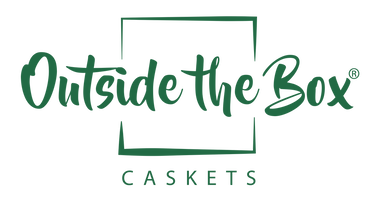



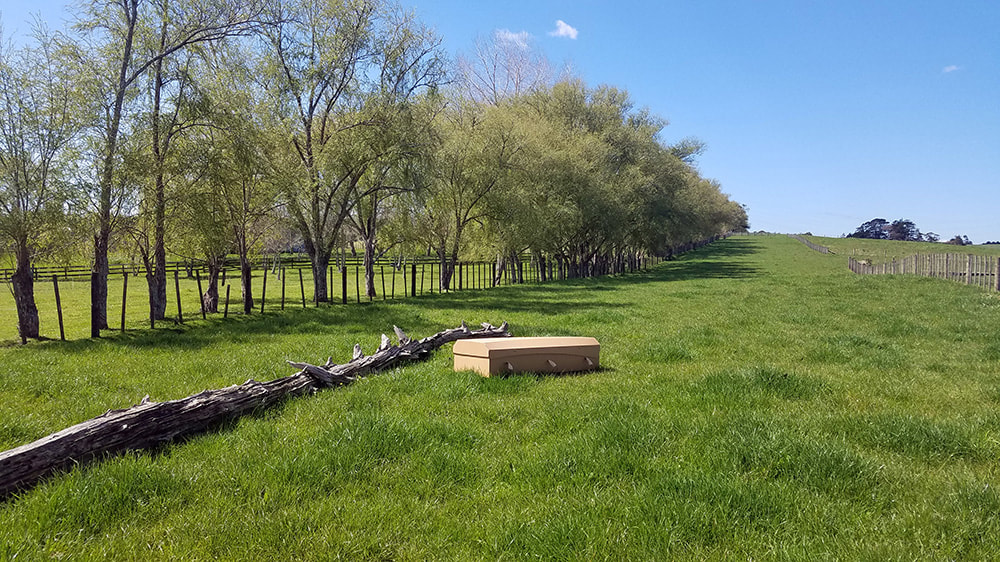
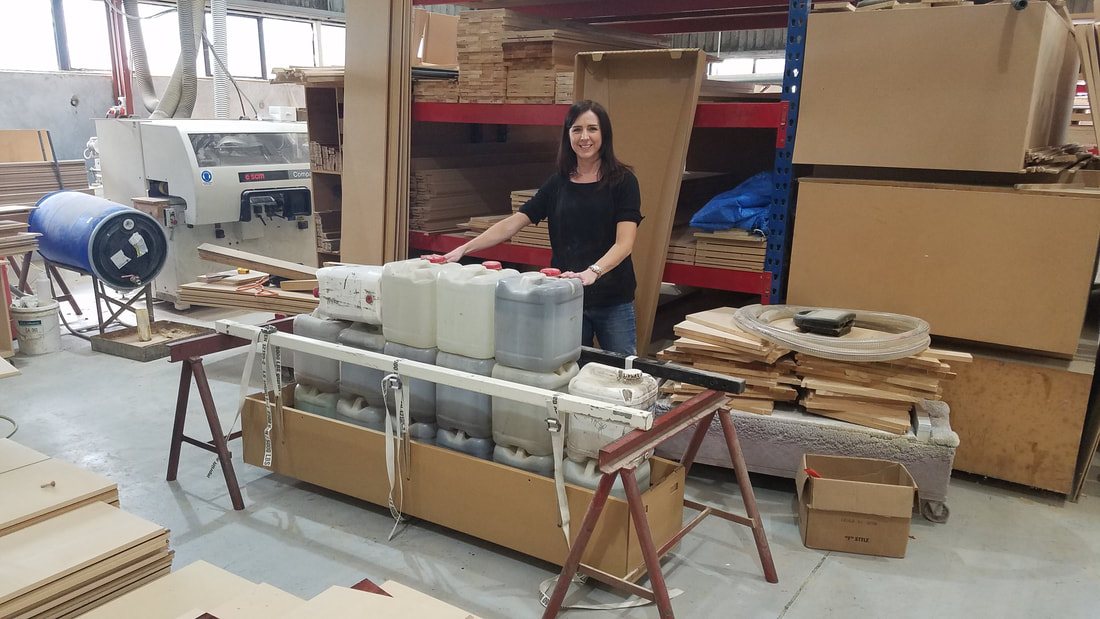
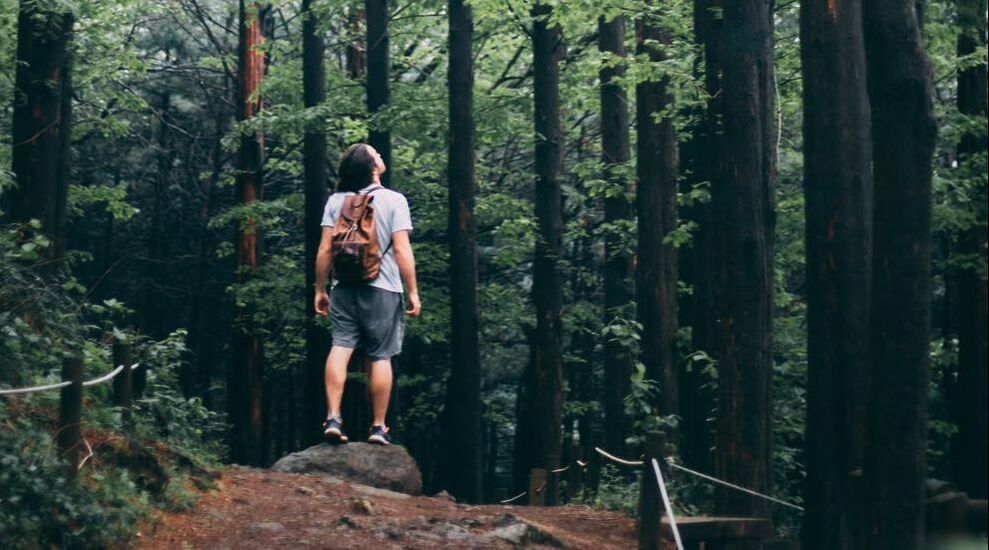
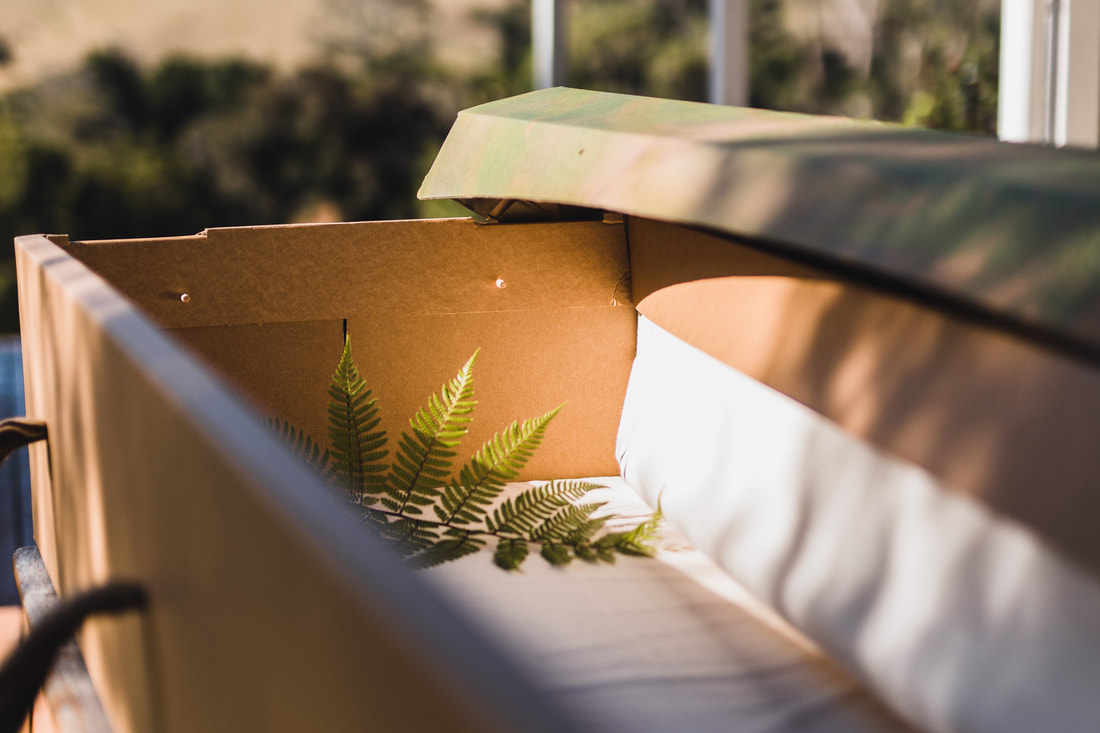
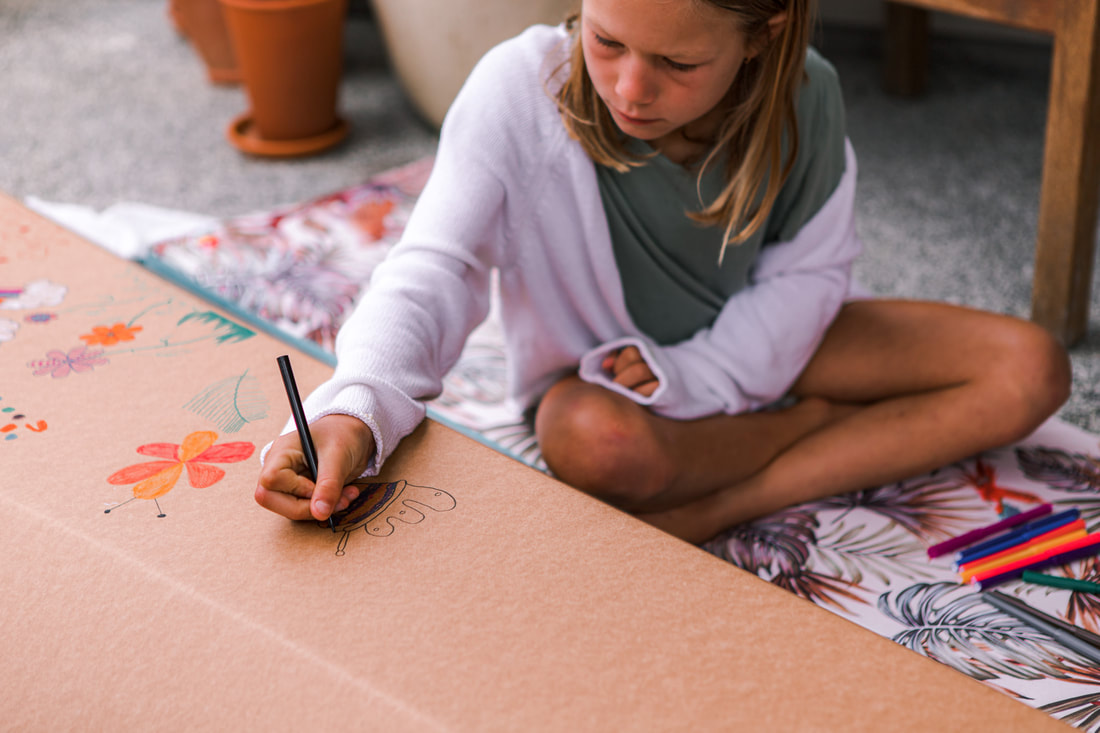
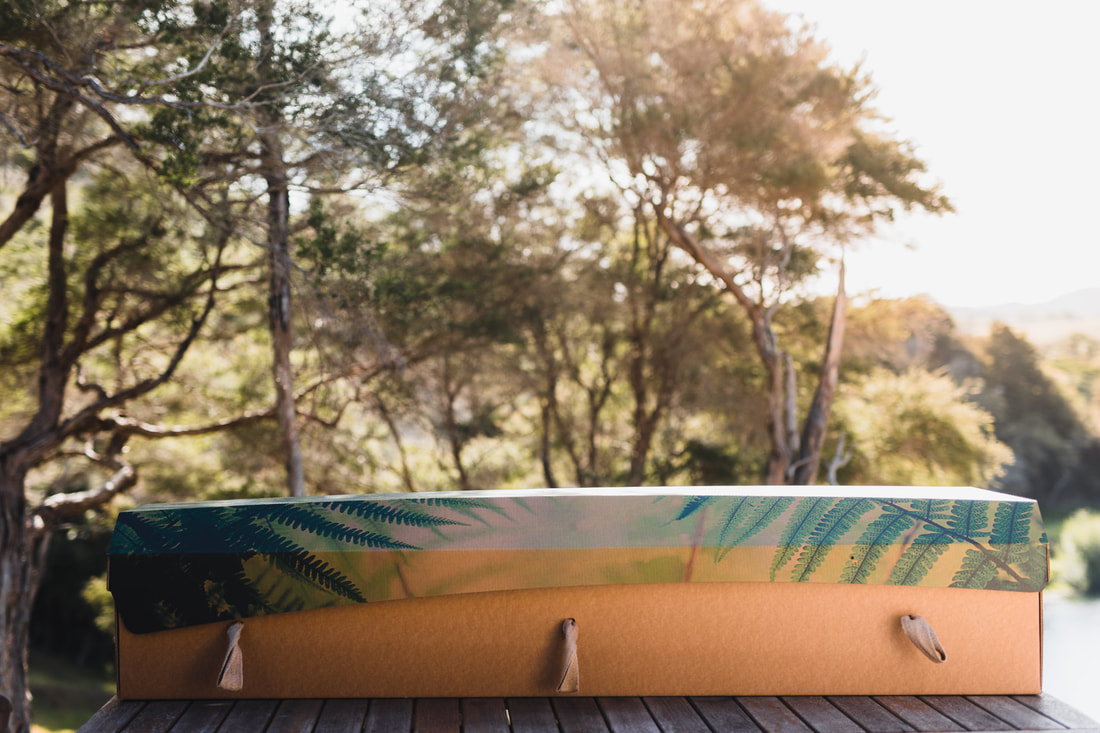
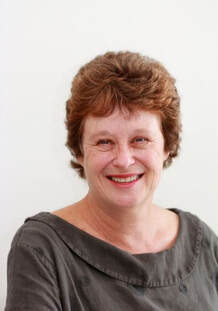
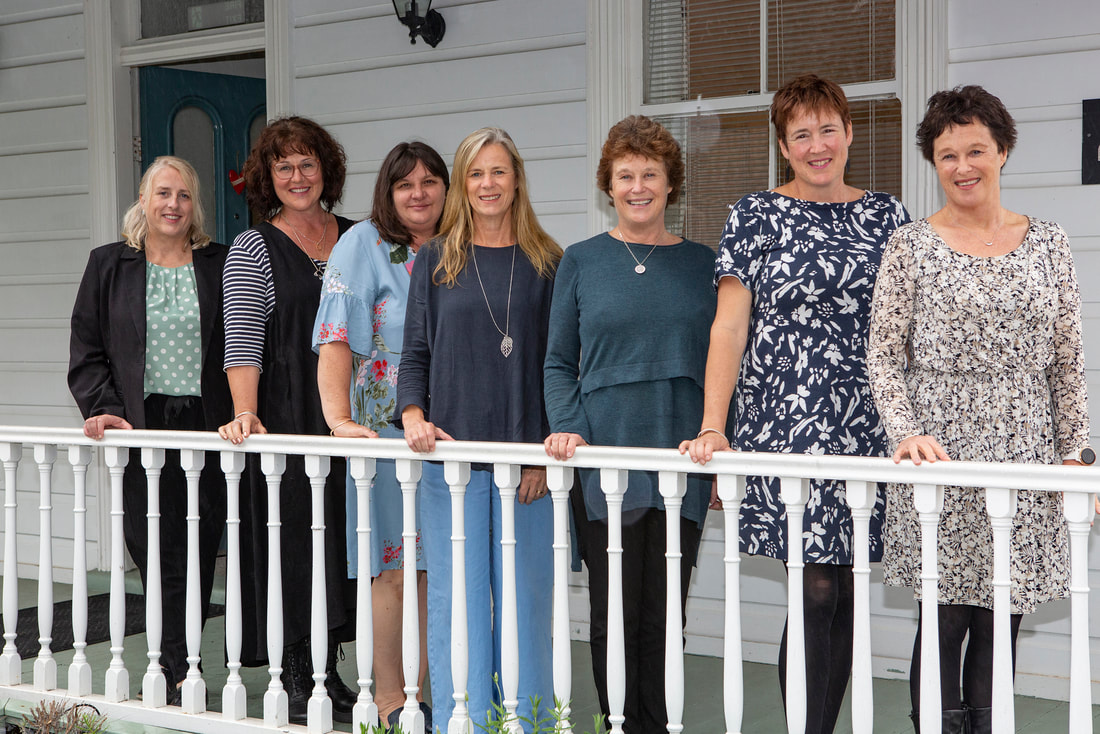
 RSS Feed
RSS Feed


